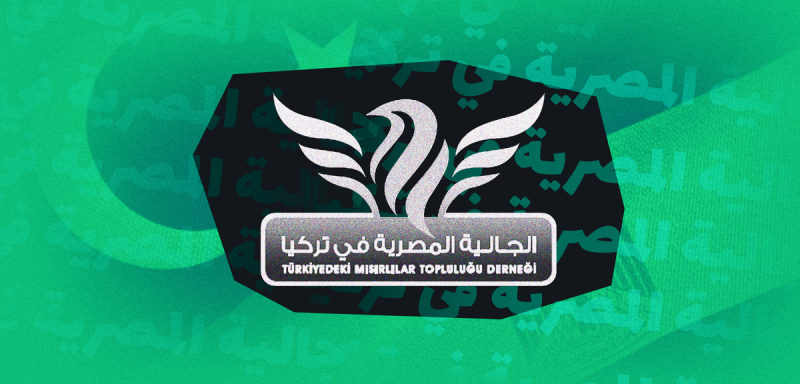With the devastating earthquake that hit Turkish and Syrian territory in February, attention has turned to “Türkiyedeki Mısırlılar Toplulugu Dernegi”, (‘the Association of the Egyptian Community in Turkey’), which has been witnessing an increase in the number of Egyptians residing there since 2013 following the political change that Egypt witnessed the beginning of during that year. Egyptians have predicted an even greater failure on the part of Egyptian authorities to follow up on the affairs of their citizens in Turkey, given that they promote the idea that Turkey is "the stronghold of the fleeing Brotherhood."
On the other hand, Egyptians in Turkey relied on the governing body of their community to help them during this critical situation. So did the association live up to their expectations?
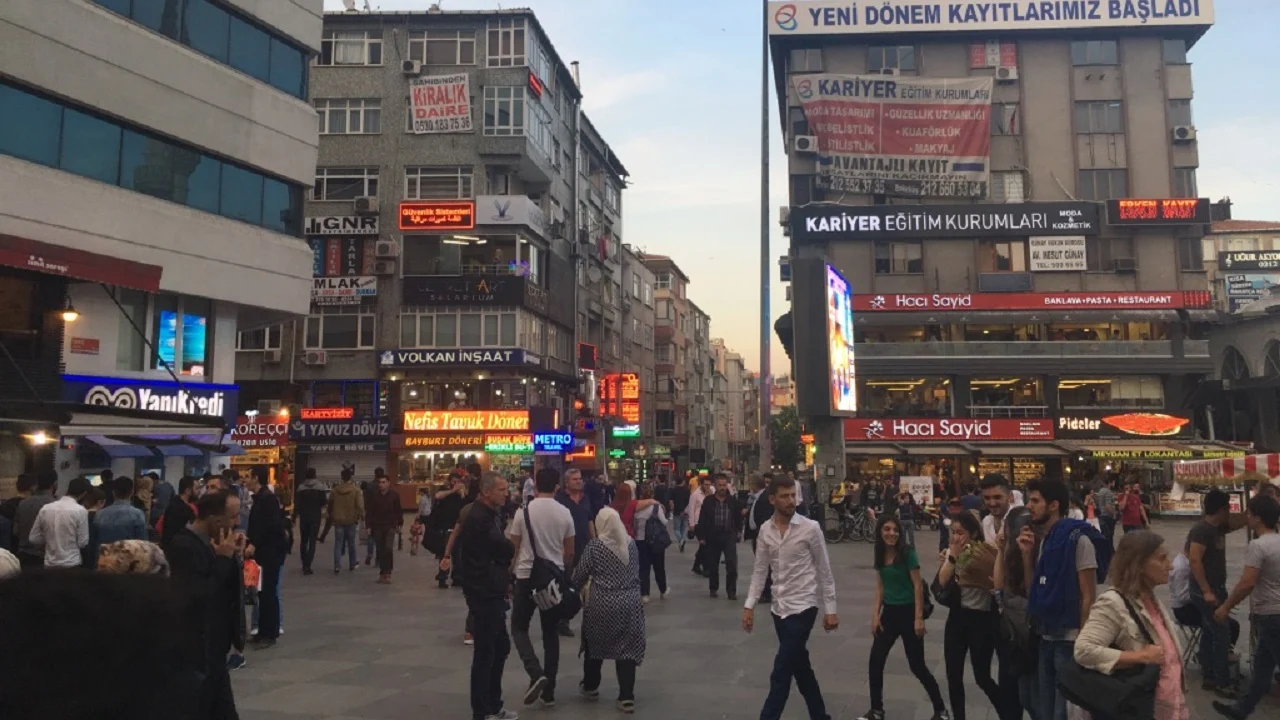
Inauguration
“An inclusive union of Egyptians in Turkey to enhance solidarity among themselves, develop their relationship with Turkish society and its institutions, and develop Egyptian-Turkish cooperation.”
These words marked the launch of the Egyptian Community Association in Turkey in 2017, after a long wait by many, whether they’re Egyptians residing in Turkey or those from the Turkish community represented by its official institutions, which over the course of four years, witnessed a significant increase in the number of Egyptians arriving to its territory, and remained lost, not knowing which entity to communicate with regarding the affairs of the thousands of Egyptian residents and refugees in Turkey, numbering at about 30,000.
Over the five years that the Egyptian Community Association has been active in Turkey, its council's political division and discrimination became evident in providing services based on the political affiliation of Egyptian refugees and immigrants
Before the establishment of the Egyptian Community Association, several entities were active in Turkey under different names, some of which were political, such as the "Muslim Brotherhood", while others were professional and serve only certain groups, such as the “Egyptian Media Professionals Worldwide - EMPW”, along with similar associations for engineers, teachers and others. Meanwhile, associations and entities that aim to serve all Egyptians of different political affiliations and professional specialties were absent.
However, over the five years that the Egyptian Community Association was active, its council's political division and discrimination became evident when it came to providing services based on the political affiliation of Egyptian refugees and immigrants. This is what prompted many Egyptians now residing in Turkey – especially those who have sought refuge there during the last ten years, either because of their political backgrounds or in search of a livelihood without political alliances – to view the union as "not up to their expectations," as Mr. Attia, a member of the Egyptian community in Turkey, tells Raseef22.
Attia has been living in Turkey for nearly eight years. He sought refuge there in search of a livelihood after he was left with no opportunities in Egypt, and now works in one of the clothing workshops in the European side of Istanbul. He says, "We have not benefited from the services announced by the association since it began to this day, except through some exhibitions and markets that they set up to sell food products at reduced prices to face the wave of high prices that Turkey has witnessed during the past years, along with some sporting events and activities." He goes on to say, "Frankly, their work is appreciated, but this is not what we were expecting from them. There are many people living here who do not know how to cope with their conditions, and even regarding the permanent residencies that they sought to acquire, not all members of the community obtained them like they said they did."
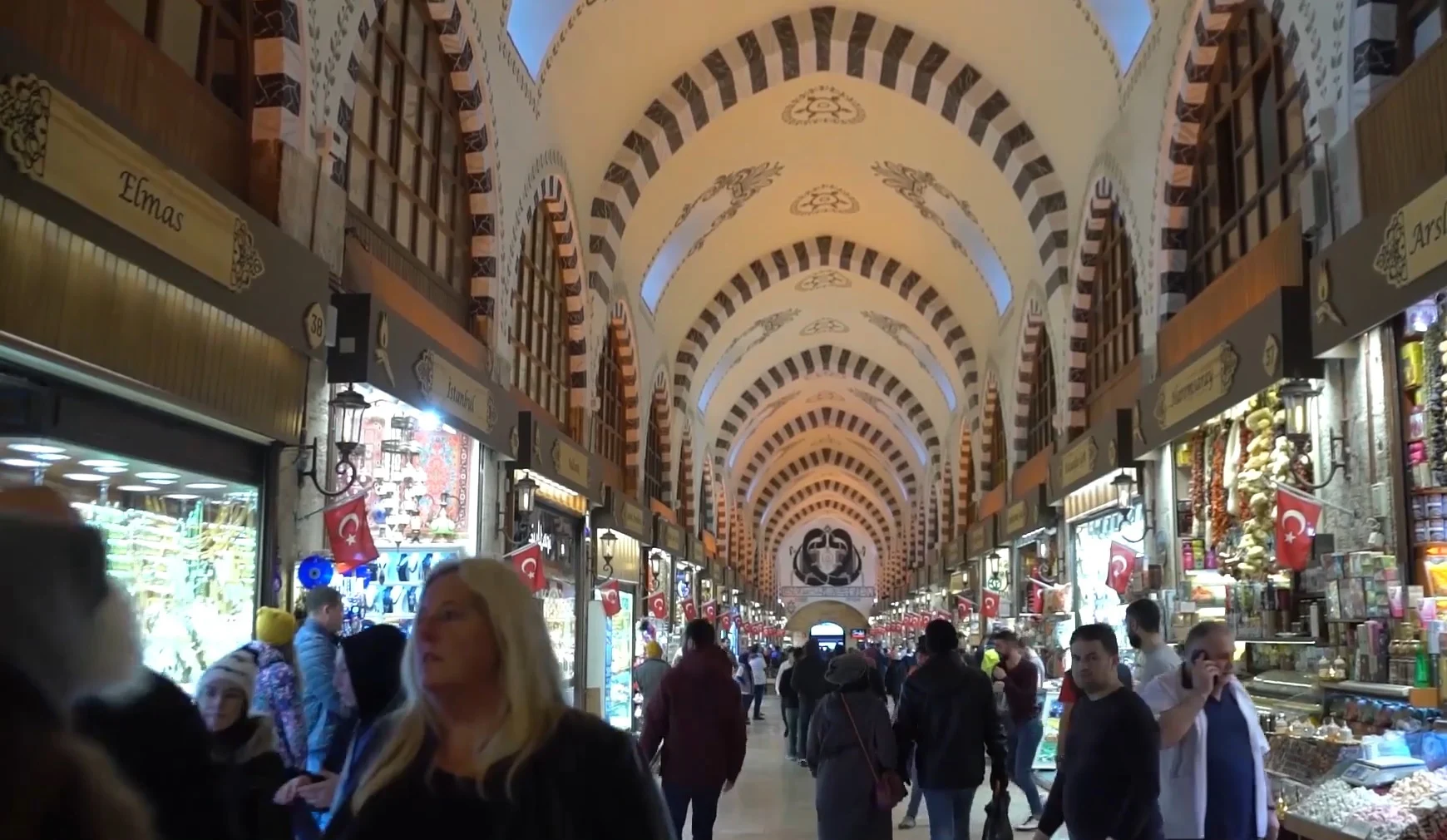
Mr. Attia's words open the door to questions related to the formation of the association's governing body, which was born under special political circumstances, represented by the declared official hostility at the time between the regimes in Turkey and Egypt, and then Turkey's quest to calm the atmosphere without having to respond to all Egyptian requests and use methods like refusing to arrest and deport some Brotherhood leaders residing on its territory.
During the devastating earthquake in Turkey and Syria, Egyptians in Turkey relied on the governing body of their community to help them during this critical situation. So did the association live up to their expectations?
Who are the members of the Egyptian community in Turkey?
According to Egyptian Immigration Minister Soha Gendy, the number of Egyptians permanently residing in Turkey reached 30,000 in 2022. They include students, doctors, engineers, businessmen, journalists, politicians and workers.
The category of Egyptian students in Turkey is considered one of the largest among international students in the country. They study in all Turkish universities, both private and public, and are spread across various states. Many of them benefit from the Turkish government scholarship for international students, which is offered by the Turkish government on an annual basis.
The largest portion of the Egyptian community in Turkey resides in Istanbul, as it is the most active central state in terms of economy and tourism, in addition to being the state that hosts Arab communities the most. Egyptians residing in the state of Istanbul are concentrated in certain areas, the most important of which are "Şirinevler", which belongs to the municipality of "Bahçe Evler", "Başakşehir", and others.
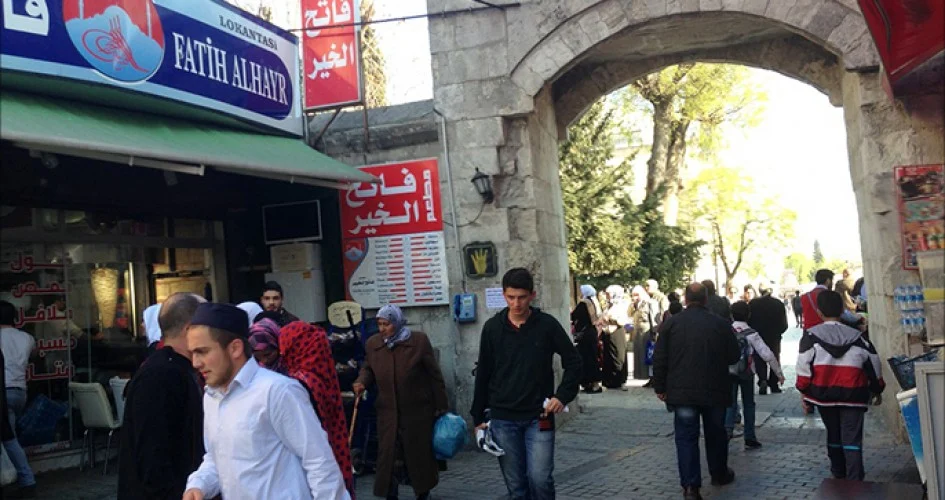
The Turkish capital, Ankara, is considered the second-best destination for Egyptians to reside in, in addition to other states such as Antalya.
Because community associations are semi-official civil society organizations whose nature requires them to coordinate with the authorities of the country of residence (in this case Turkey) and the authorities of the mother country represented by their embassies, consulates and ministries of immigration, the success of the association depends on its ability to create the required balance and preserve the interests of community members at the same time, which becomes particularly difficult in the Turkish case.
Egyptians in Turkey, especially expatriates, have begun to wonder: On what criteria were some members of the community selected to obtain permanent residency and not others? Why did the association nominate some names of its members for Turkish citizenship?
During the last ten years, Egyptians in Turkey, especially expatriates, have begun to wonder: On what criteria were some members of the community selected to obtain permanent residency and not others? Why did the association nominate the names of some of its members, whose official Egyptian papers (passport) have expired, for Turkish citizenship?
To answer these questions, let’s take a step back to get to know the most prominent faces of the association from its inception until now.
A rocky inception
In March 2018, the Egyptian Community Association in Turkey was inaugurated as an official association documented and recognized by the state, and members of the community elected an interim governing body to manage it, headed by Dr. Attia Adlan, along with 15 other members, including media and political activists opposed to the regime, who had left Egypt in 2013 after the Muslim Brotherhood was overthrown from power.
This council continued to manage the affairs of the community until January last year, when elections were held to choose a new council, which witnessed great competition among the lists that nominated themselves for this responsibility. The elections ended with the victory of a council headed by former member of parliament belonging to the Muslim Brotherhood, Adel Rashid, along with some media professionals and political activists affiliated with the Brotherhood and others who do not belong to the group.
Members of the community’s governing body doing in telephone interviews with local Egyptian media began facing accusations of communicating with the "Egyptian Security" under the cover of serving the Egyptian community and following up on its affairs
With the election of the new council, the members of the community association increased, and their aspirations increased, hoping for a good outcome with the new council since it was based on their choosing. But the challenges faced by the council, especially with regard to adjusting the situation of the community members, were greater than its capabilities, as its most important electoral promises were to improve the conditions of all Egyptians residing in Turkey by obtaining residency in the country or obtaining Turkish citizenship, especially with the great restrictions and difficult conditions that Turkey has placed for obtaining residency. This was expressed by the head of the Egyptian community in Turkey, Adel Rashid, in a statement that said: "We are working to meet the requests of all members of the community, especially with regard to reconciling the situation, and we are in constant contact with officials in the Turkish state in this regard, but we must know that such procedures take a lot of time here."
These difficulties that the members of the association weren’t able to overcome, were met with indignation by the Egyptian residents. Political affiliation is clearly reflected in the equation of accepting or rejecting the council's performance. Resident Egyptians considered the association’s council to be "a council for Muslim Brotherhood members only," while members of the Muslim Brotherhood accused it of being "a council that is no longer for Egyptian dissidents living abroad."
Doubts and suspicions
Following the catastrophe of the devastating earthquake that struck Turkey and Syria, it can be said that it was able to split the ranks of the Egyptian community in Turkey, as its members, who belong to the Muslim Brotherhood movement or its sympathizers, were angered, after the head of the association Adel Rashid took part in a telephone interview on the Egyptian channel "Al'asima", which broadcasts from Cairo, to talk about the conditions of the Egyptian community following the earthquake and the safety of its members. The channel presented Adel Rashid as the head of the Egyptian mission in Turkey, contrary to what it previously described him as a "terrorist Brotherhood member”.
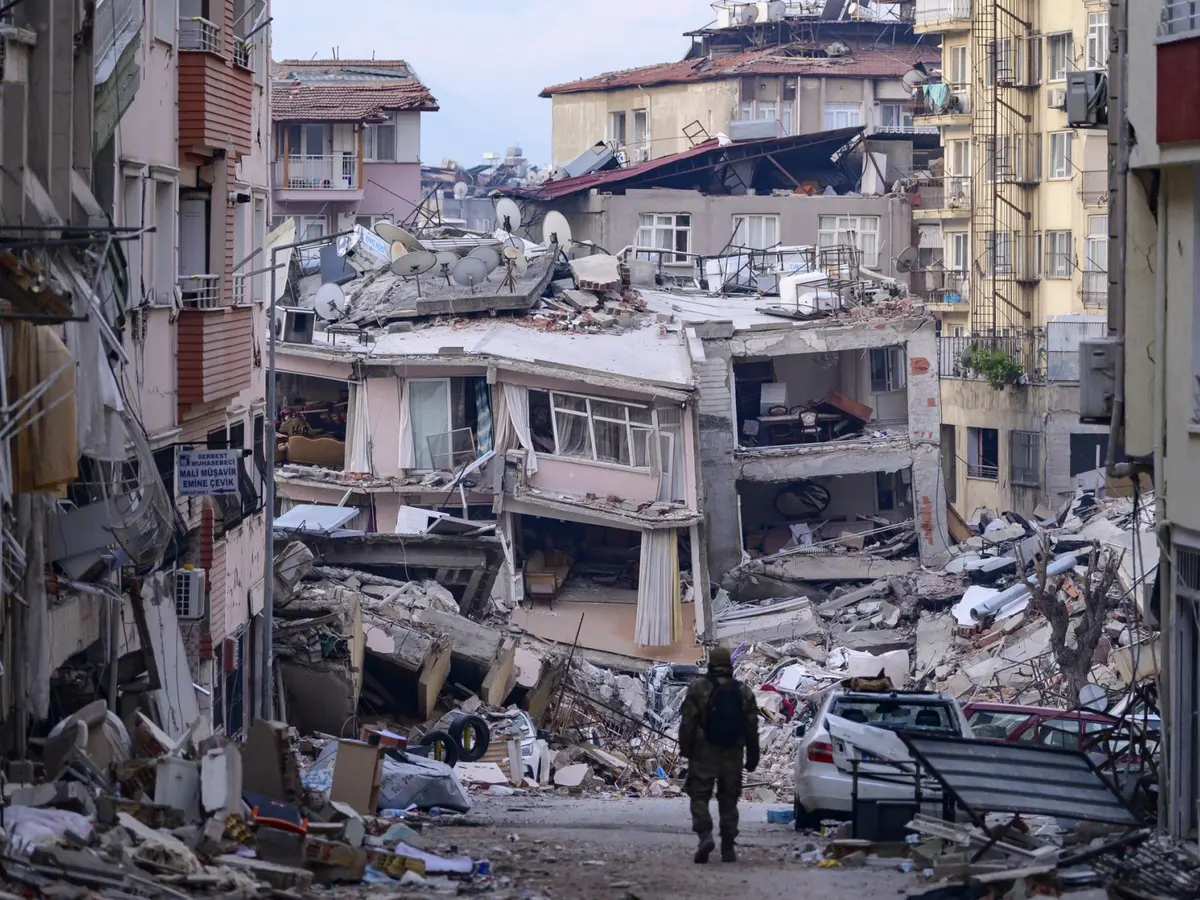
Community council member Nader Fattouh, a broadcaster at the Egyptian opposition channel, Al-Sharq, which broadcasts from Turkey, also made a telephone interview on Sada el-Balad channel with journalist Azza Mustafa. The channel is owned by businessman Mohamed Abu el-Enein, one of the few businessmen who is close to the Egyptian president.
In his interview, Fattouh spoke – as a member of the community's governing body – about the latest developments in the earthquake and the community's efforts to provide a helping hand to those affected. However, these interviews were met with skepticism by members of the group in Turkey, as the members of the community’s governing body participating in these interviews began facing suspicions and accusations of communicating with the "Egyptian Security" under the cover of serving the Egyptian community and following up on its affairs. Social media has also turned into an arena of conflict and accusations between those who believe that the appearance of those in charge of the community in the Egyptian media is an acts of "normalization with the ruling Egyptian regime”, and between others who believe that this step is natural because this council represents all Egyptians in Turkey with their various partisan and intellectual affiliations.
Between this and that, the issue of services and who receives them, and classifying those who receive them based on their connection to the group, is still the biggest concern and criterion for Egyptians in Turkey – most of whom are young students – to judge the performance of the association council, which will remain in its position until new procedures may be affected in the future by developments in the official relationship between the regimes in Egypt and Turkey, which may prompt some to place restrictions on the group possibly very soon.
Raseef22 is a not for profit entity. Our focus is on quality journalism. Every contribution to the NasRaseef membership goes directly towards journalism production. We stand independent, not accepting corporate sponsorships, sponsored content or political funding.
Support our mission to keep Raseef22 available to all readers by clicking here!
Interested in writing with us? Check our pitch process here!
